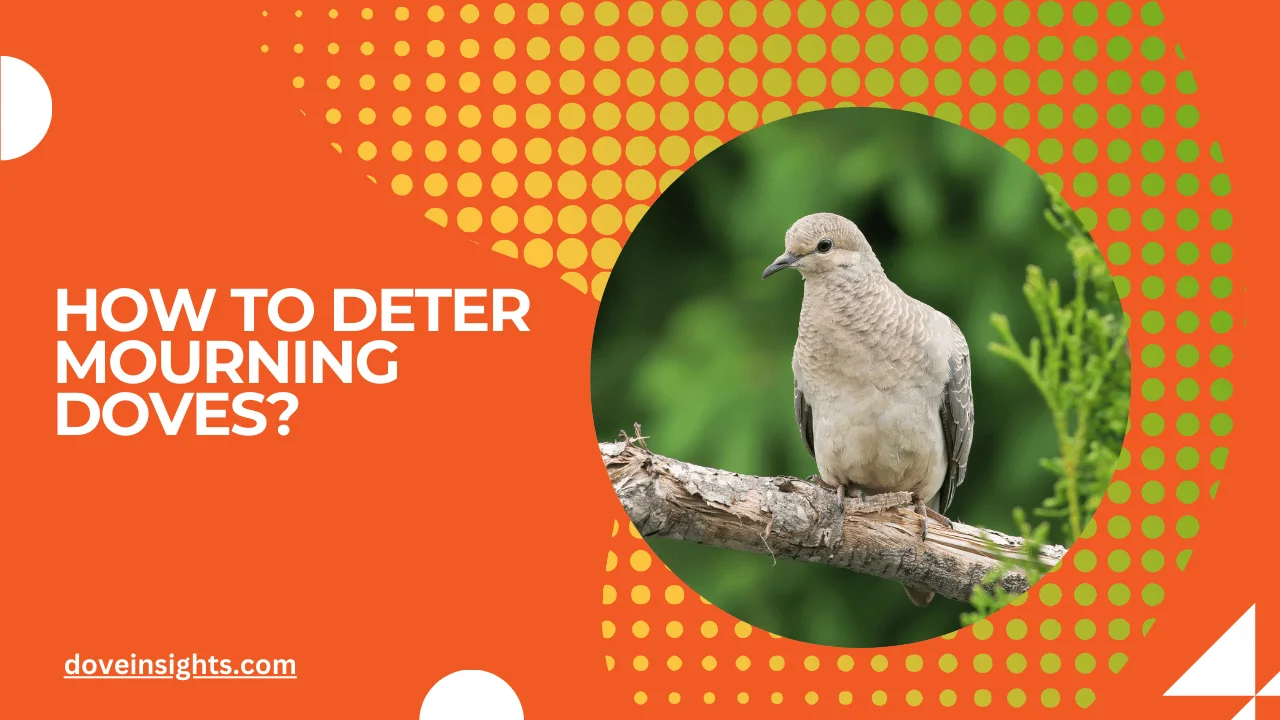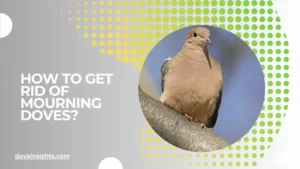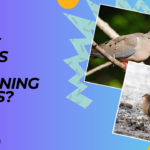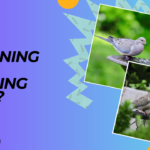Mourning doves, with their gentle cooing and graceful flight, are beloved by bird watchers and nature enthusiasts.
However, when these peaceful birds decide to roost in your yard or on your property, they can quickly become a nuisance. Known for their abundance in urban and suburban areas, mourning doves can cause significant damage to garden plants, create messy nests on ledges, and leave droppings that pose health risks.
So, how do you keep mourning doves from becoming an unwelcome guest in your yard without harming them?
This article provides effective methods to deter mourning doves humanely, ensuring you can enjoy your space while maintaining a balance with nature. Whether you’re trying to protect your vegetable garden, windowsills, or just avoid their persistent cooing, we’ll explore practical, ethical solutions that can help you reclaim your property.
Contents
Understanding the Mourning Dove Behavior
Before diving into ways to deter mourning doves, it’s important to understand their behavior and why they are so attracted to certain areas.
Mourning doves are non-aggressive, diurnal birds, which means they are active during the day and roost at night. They are seed-eating birds and often gather in large groups around bird feeders, gardens, and open spaces.
Their nests are usually flimsy constructions made of twigs, leaves, and other materials, which they often build on window ledges, roof eaves, or even in trees.
Doves are persistent and typically return to the same spots year after year, especially if they find a consistent food source or safe nesting site. This repeated behavior can be frustrating for homeowners who wish to keep their property tidy and safe from damage.
By understanding that mourning doves are not malicious, but rather creatures acting on instinct, we can devise humane strategies to deter them from lingering on your property without causing harm.
Knowing their habits, such as their preference for high, sheltered areas to nest, will allow you to target specific strategies effectively.
Physical Barriers and Deterrents
One of the most effective ways to keep mourning doves from taking up residence on your property is by installing physical barriers that prevent them from landing or nesting in certain areas. Here are a few strategies you can use:
- Bird Spikes: Bird spikes are simple yet effective deterrents that can be installed on window ledges, rooflines, and other flat surfaces where doves may perch. These spikes don’t harm the birds but make it nearly impossible for them to land. The spikes work by creating an uncomfortable and unstable landing area.
- Mesh Netting: Installing mesh netting over areas such as balconies, gardens, or patios can block doves from nesting. This is particularly useful for gardens where you want to keep doves from accessing seed beds or plants.
- Bird-Safe Netting: For areas like eaves or ledges where doves prefer to nest, you can use bird-safe netting to block access. This type of netting is durable, unobtrusive, and effective at keeping birds from building nests.
- Reflective Tape or Mylar Strips: Birds are often startled by shiny, reflective surfaces. Hanging reflective tape or Mylar strips in areas where doves like to perch can help deter them. The flashing lights from the sun create a sense of movement and discourage the birds from staying in the area.
Natural Deterrents and Environmental Modifications
Mourning doves are creatures of habit, and once they find a comfortable nesting or feeding spot, they can be difficult to deter.
However, modifying the environment to make it less appealing to them can encourage them to move on. Here are some natural deterrents and environmental changes that can help:
- Remove Food Sources: Doves are primarily seed eaters, so the best way to deter them is by removing any potential food sources. If you have bird feeders, try to choose designs that are less appealing to doves, such as those designed to attract smaller birds. Additionally, make sure to clean up spilled seeds promptly to avoid attracting mourning doves.
- Prune Trees and Shrubs: Doves prefer to nest in dense foliage and trees, so keeping trees and bushes well-pruned can make your yard less inviting. If doves have built nests in nearby trees, carefully removing the nest (if it’s not in use) or trimming back branches can make it harder for them to settle there.
- Avoiding Water Sources: Doves are attracted to water, particularly in dry conditions, so if you have fountains, ponds, or birdbaths, consider either moving them or covering them during times when doves are most active.
Sound and Visual Deterrents
Mourning doves can be deterred by both visual and auditory stimuli that make them feel uncomfortable or unsafe. Using a combination of sound and visual deterrents is one of the most effective ways to keep doves away. Here are a few options to consider:
- Predator Decoys: Using a predator decoy, such as an owl or hawk, can make mourning doves feel threatened. Doves, being prey birds, are highly sensitive to predators and will avoid areas where they perceive danger. You can purchase a realistic owl or hawk decoy or even make your own.
- Wind Chimes or Loud Noises: Sound can be a powerful deterrent for doves. Wind chimes, alarms, or even radios left on in the garden can create an environment that’s unpleasant for the birds. Doves are naturally skittish, so these sudden noises can prompt them to move on to quieter areas.
- Holographic Visual Deterrents: Doves are also sensitive to light and movement. Holographic bird deterrents, such as spinning objects or reflective surfaces, can be effective. These devices catch the light and move in the wind, creating flashes of light that can scare the birds away.
Humane Traps and Relocation
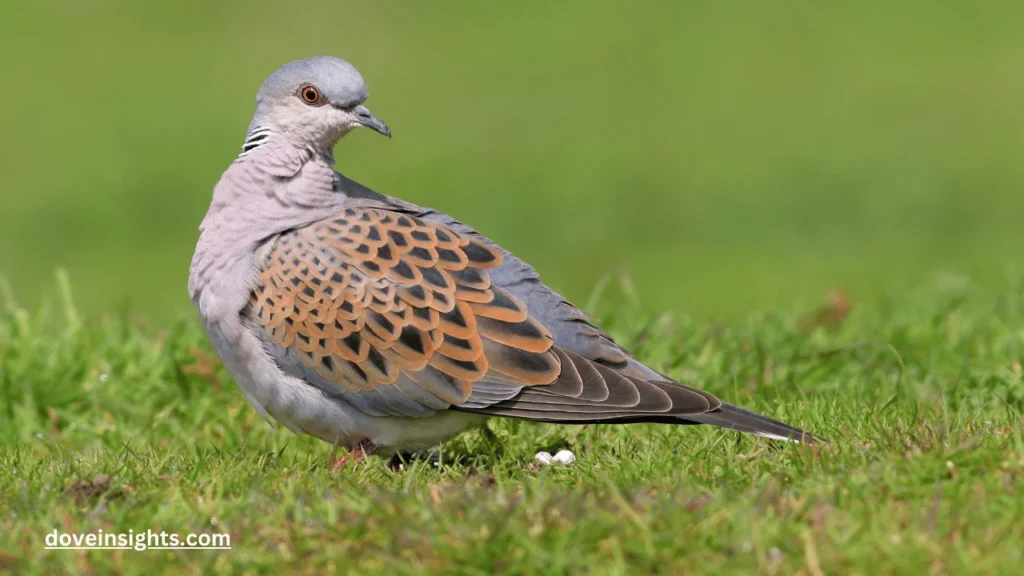
In some cases, physical and environmental deterrents may not be enough to completely discourage mourning doves from lingering around your property. If the issue persists, you may need to resort to more active measures, like humane traps or relocation.
- Humane Traps: If you have a serious dove problem, consider using humane traps to capture and relocate the birds. These traps are designed to catch birds without causing harm and can be purchased online or at pet supply stores. Once captured, the doves can be safely relocated to a more suitable environment, away from your property.
- Relocation: When relocating doves, it is important to follow local laws and regulations regarding bird relocation. Doves are protected under various wildlife laws, and it’s crucial to ensure that they are moved to an appropriate location where they won’t become a danger to themselves or others.
Conclusion:
Deterring mourning doves from your property can be a challenge, especially since they are gentle, non-aggressive birds that are simply following their natural instincts.
However, with the right approach, it’s possible to deter them humanely and without causing harm. By using a combination of physical barriers, natural deterrents, environmental changes, and visual or auditory deterrents, you can reduce the likelihood of doves settling in areas you’d prefer to keep bird-free.
It’s essential to remember that while doves can sometimes be seen as a nuisance, they are also part of the ecosystem, and their presence is often beneficial.
As long as we take a balanced, humane approach to managing dove populations, we can coexist peacefully with these beautiful creatures.
FAQ’s
Why are mourning doves attracted to my yard?
Mourning doves are attracted to yards with food sources (such as birdseed), safe nesting spots, and water sources.
What is the most effective way to deter mourning doves?
Installing bird spikes, using reflective tape, and removing food sources are some of the most effective ways to deter mourning doves.
Will loud noises scare mourning doves away?
Yes, doves are sensitive to loud sounds, and using wind chimes or a radio can help deter them.
Can I use a decoy to keep doves away?
Yes, placing a predator decoy, such as an owl, can help deter doves by making them feel unsafe.
Do mourning doves pose any health risks?
Mourning dove droppings can carry diseases like histoplasmosis, so it’s important to clean up droppings regularly.
Is it illegal to remove mourning dove nests?
Yes, mourning doves are protected under wildlife laws, and removing nests without proper permits may be illegal.

